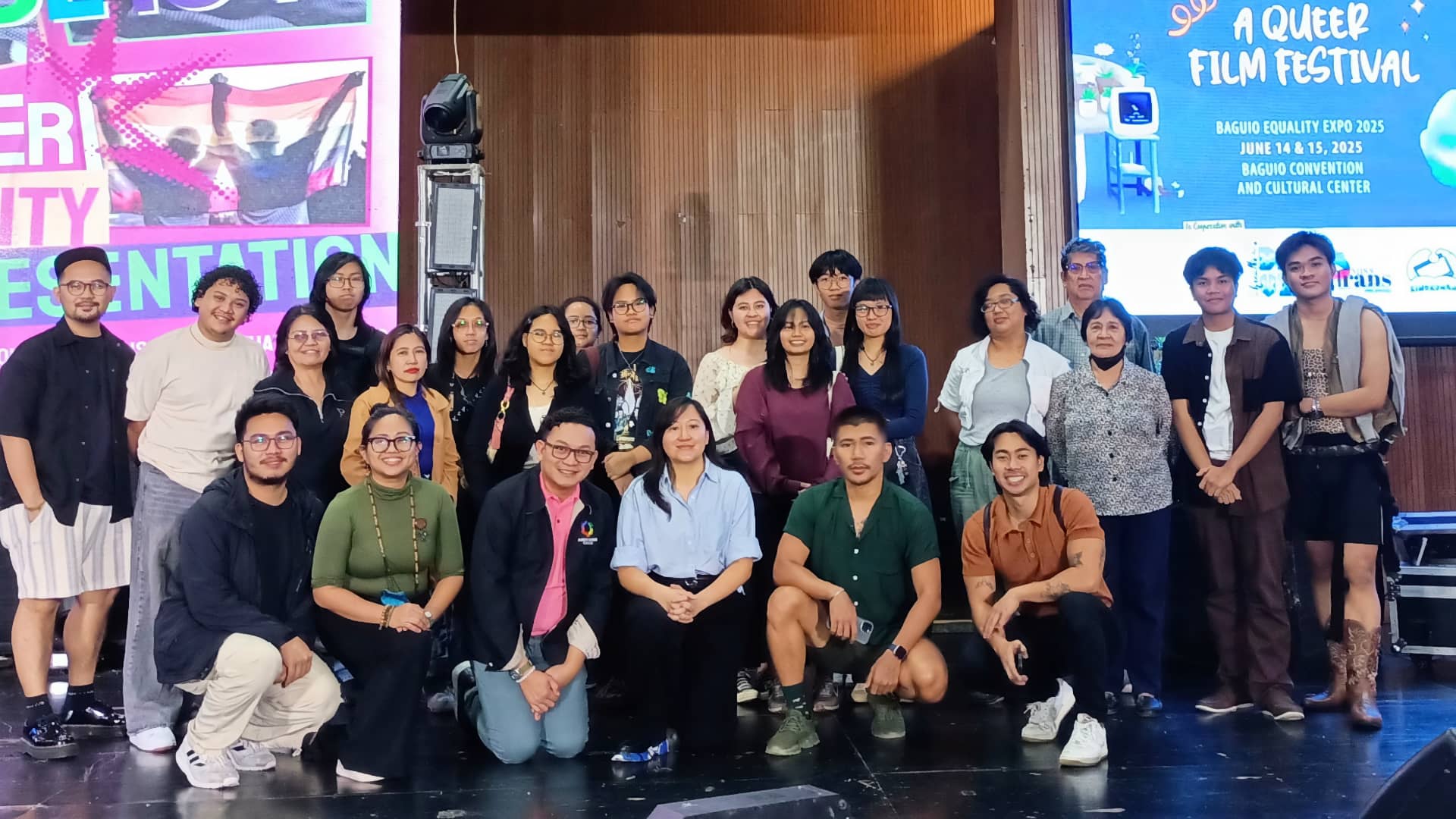

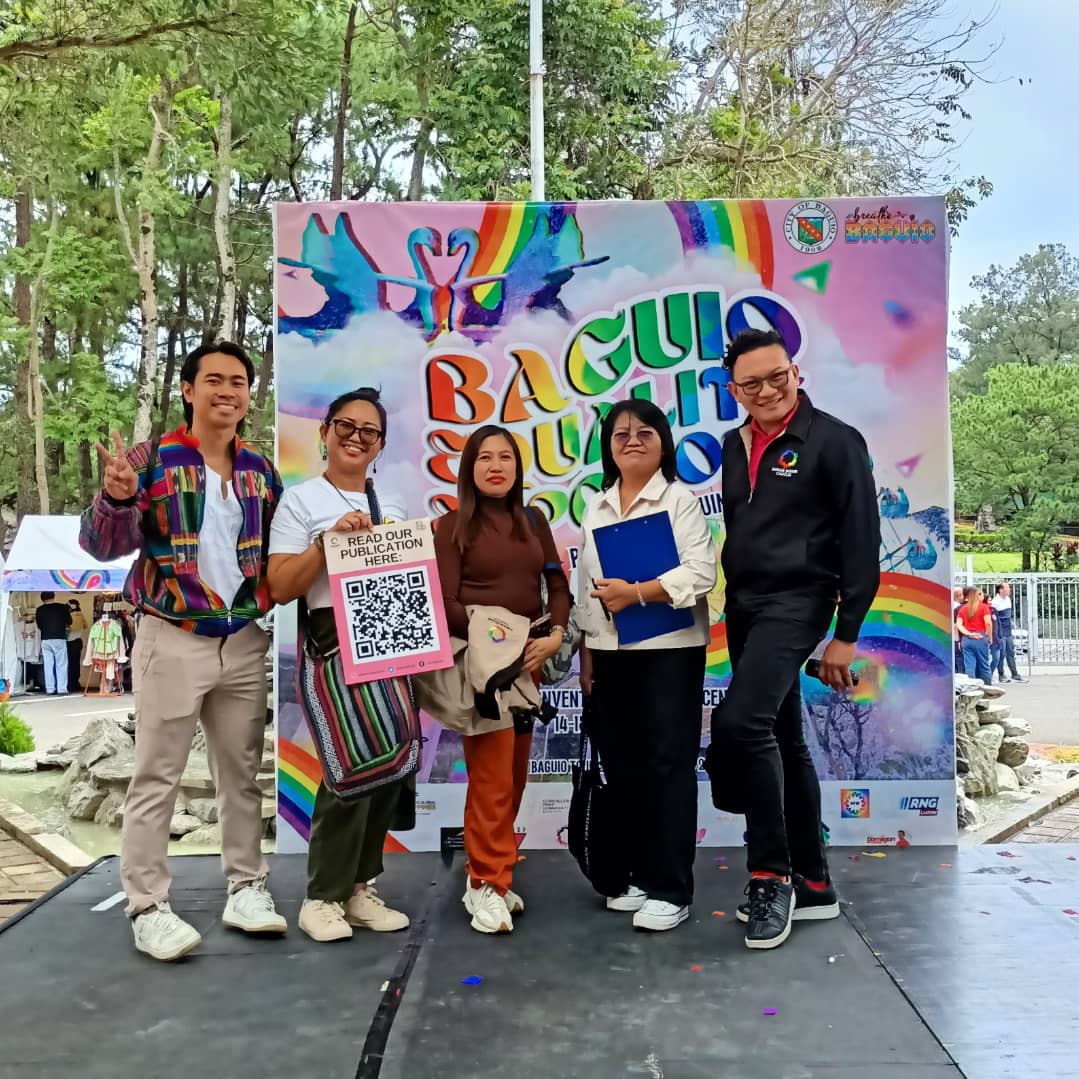
Written by Sol De Castro, SEAQCF Event Coordinator
BAGUIO CITY, PHILIPPINES — As Pride Month unfolds, so do the stories on screen. Nestled where the mountains meet the clouds, Baguio City—known for its vibrant arts scene and progressive spirit—hosted the first-ever Baguio Pride Expo 2025 on June 14–15. The weekend-long celebration spotlighted queer history, art, and conversations with voices from across the LGBTQIA+ movement in the Philippines.
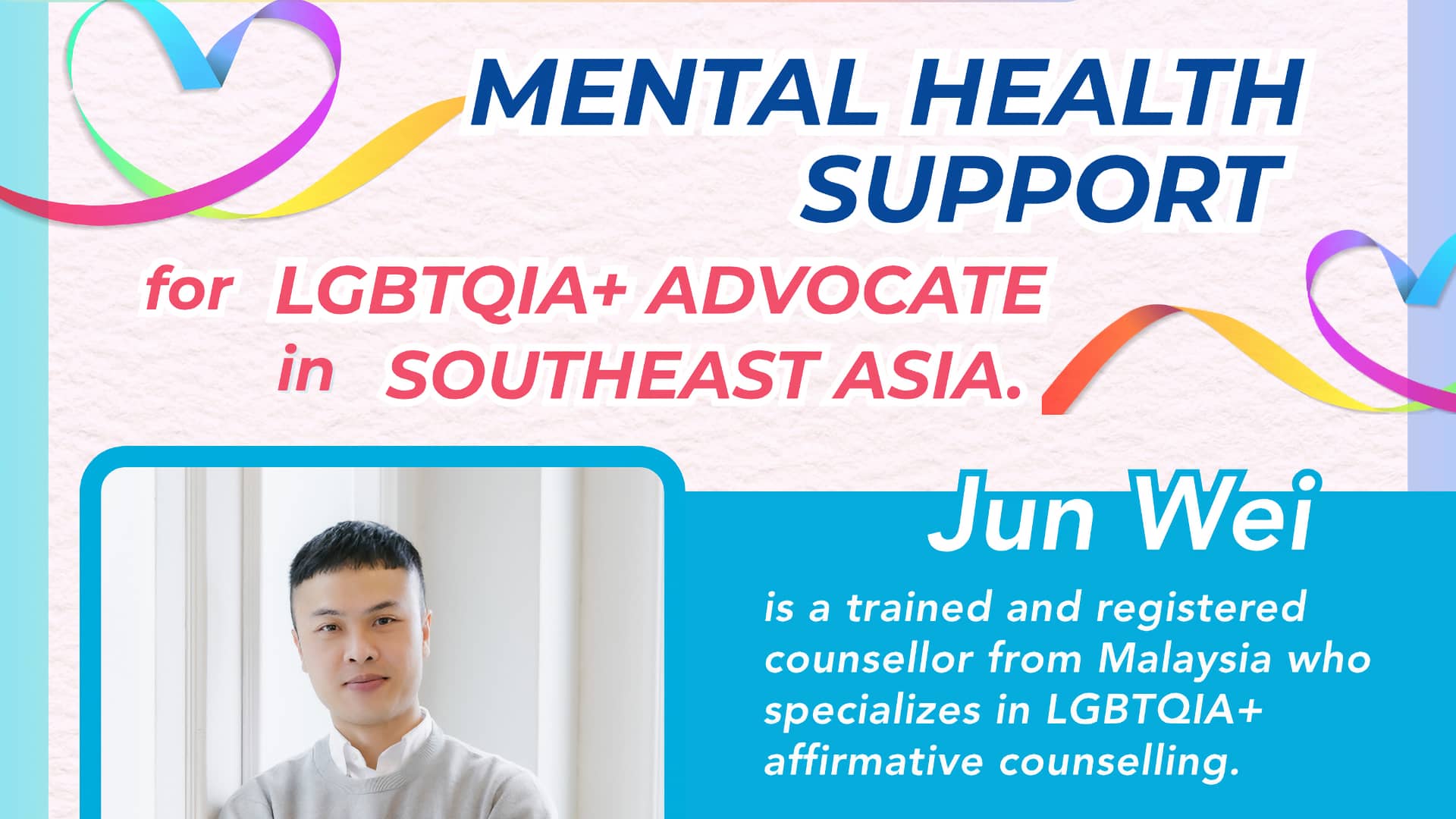
In the ongoing fight for equality and human rights, LGBTQIA+ activists often stand on the front lines, dedicating their lives to advocating for their community. However, this crucial work comes with significant mental health challenges that are often overlooked. The emotional labor involved in educating others, challenging systemic injustice, and bearing witness to the struggles of their community can lead to burnout, vicarious trauma, and profound emotional distress. As we continue to push for a more inclusive world, recognizing and addressing the mental well-being of LGBT activists is paramount for both their individual health and the sustainability of the movement.
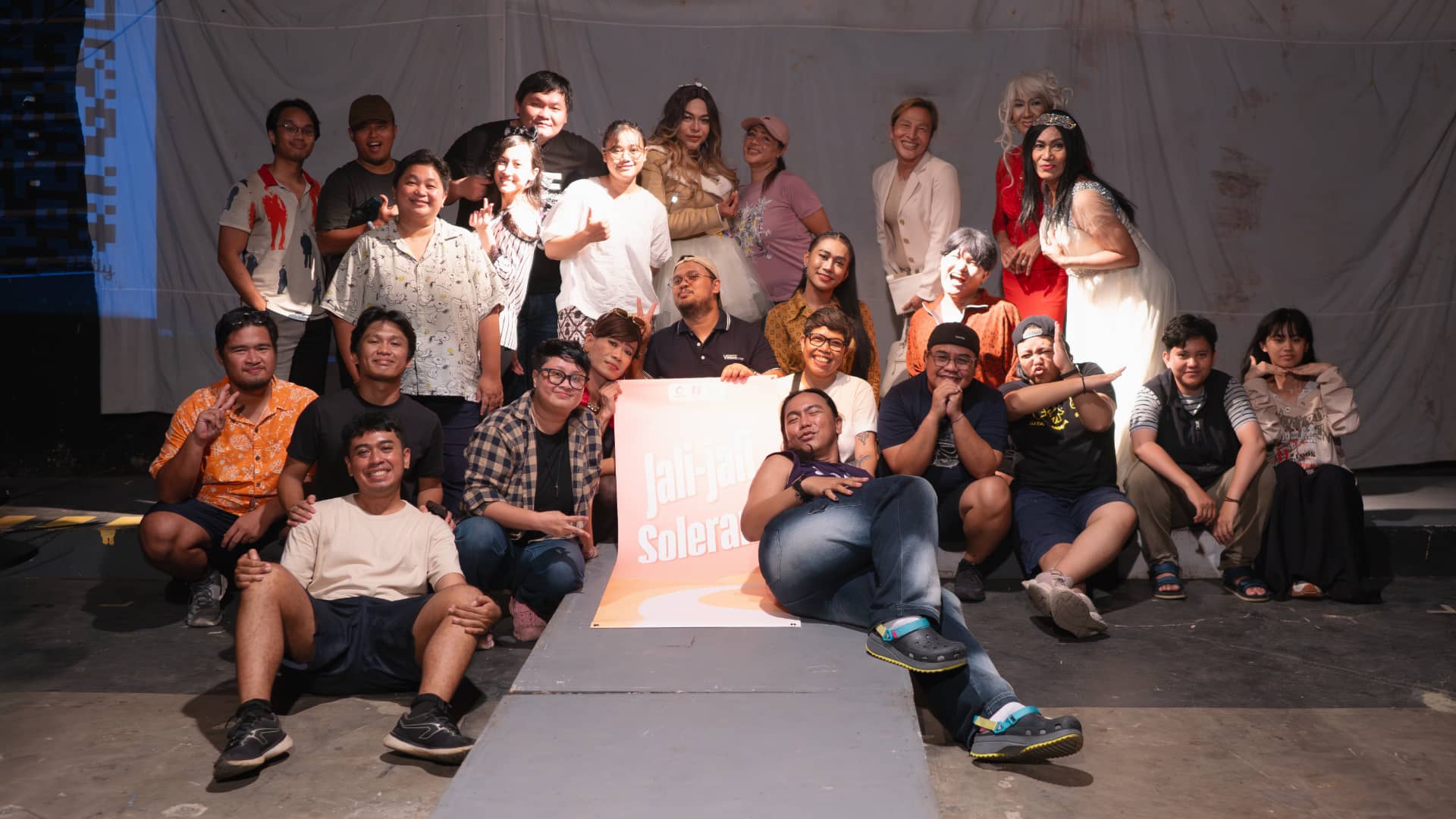

Written by: Riska Carolina, Advocacy Officer, ASEAN SOGIE Caucus
At the end of May 2025, the sound of boomboxes and footsteps of participants filled the late afternoon in Kampung Duri. The narrow streets and alleys that once silently witnessed the struggles of the transwomen community are now alive again. The sound were not because of evictions or dispersals, but because of the Jali-Jali Soleram 2.0, an event that is part of the commemoration of the International Day Against Homophobia, Transphobia, and Biphobia (IDAHOBIT). Anchored on the theme "The Power of Communities", the event brought closer the stories to the communities being both a site of empowerment and resistance.
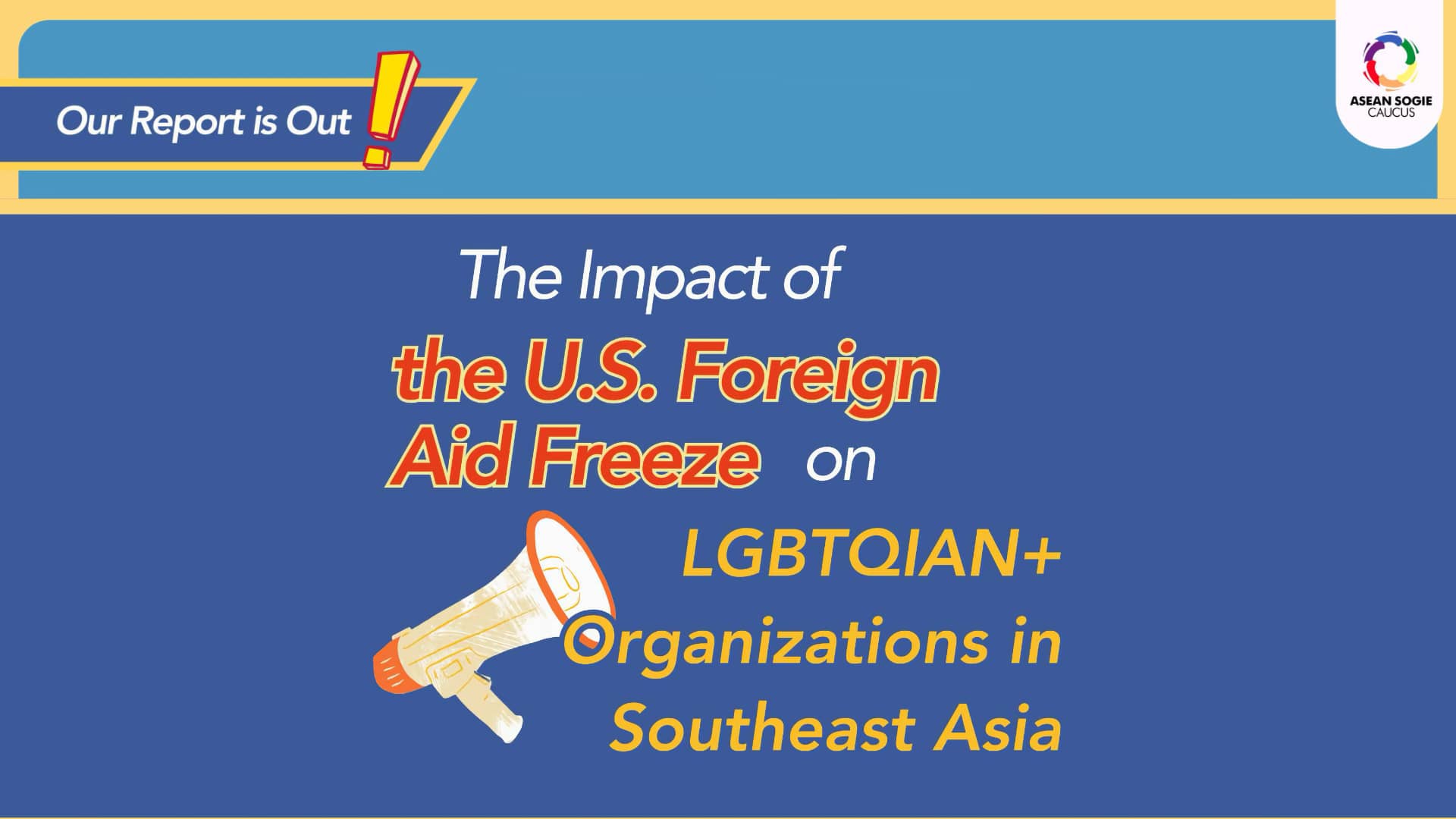
The U.S. foreign aid freeze has placed immense pressure on LGBTQIAN+ organizations in Southeast Asia, forcing many to scale down, pause operations, or shut down entirely. Our latest report highlights the devastating impact on advocacy, healthcare, and community support programs that thousands rely on for survival. With funding losses ranging from $15,000 to $200,000 per organization, the crisis is deepening vulnerabilities for LGBTQIAN+ communities facing discrimination, unemployment, and lack of access to essential services. Now more than ever, we must mobilize urgent financial support and push back against rising anti-LGBTQIAN+ policies. Read our full report to understand the scope of the crisis and how we can take action together.
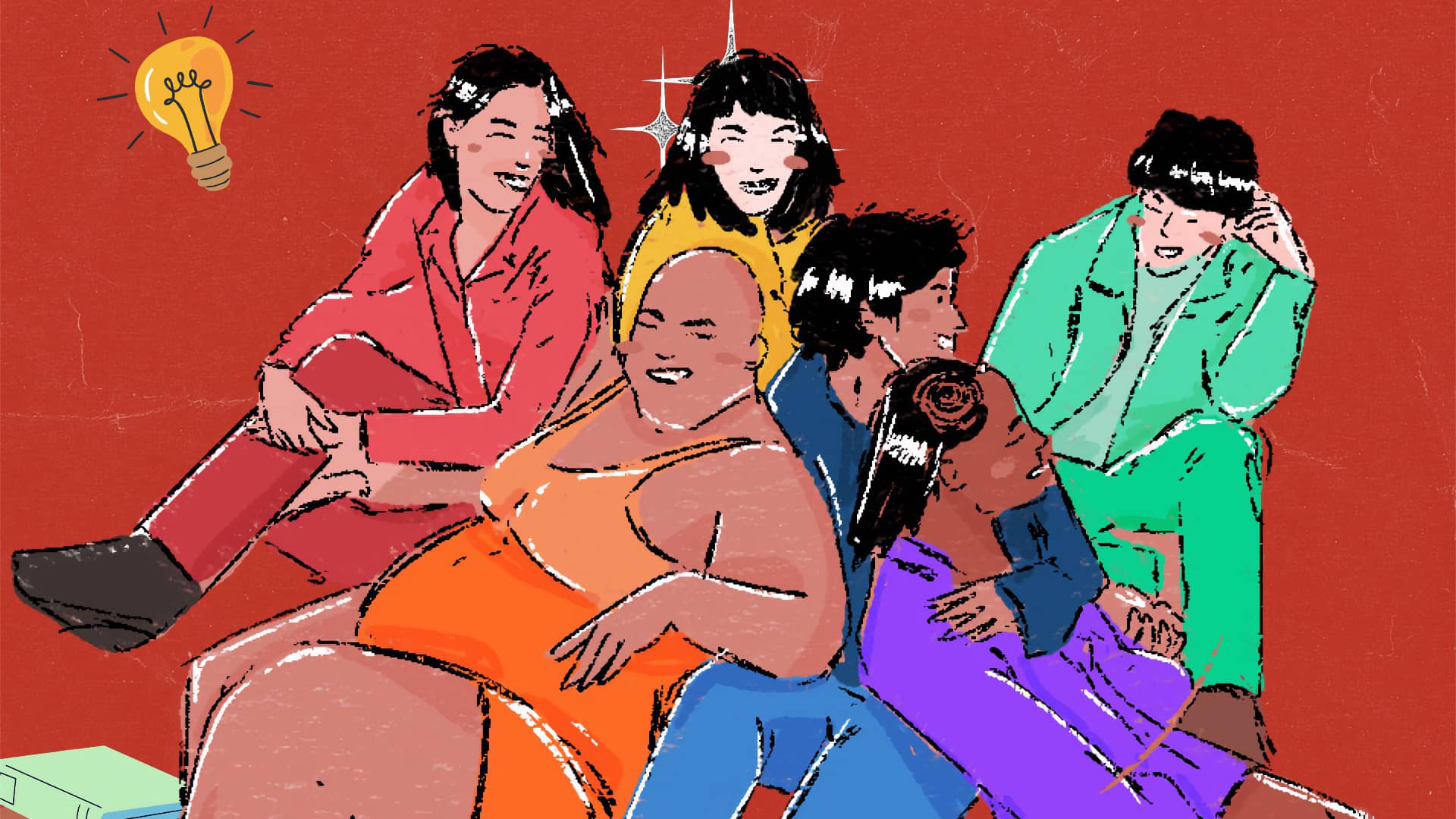
Feminist Participatory Action Research (FPAR) is gaining recognition as a transformative research approach, especially in empowering marginalized communities, including LGBTQIAN+ groups in the ASEAN region. This brief synthesizes the discussions and insights from the recent launch of a scoping study conducted by the ASEAN SOGIE Caucus, in collaboration with partners and research collaborators. The study itself explored the application of FPAR, the challenges encountered, and proposed next steps for enhancing its impact.
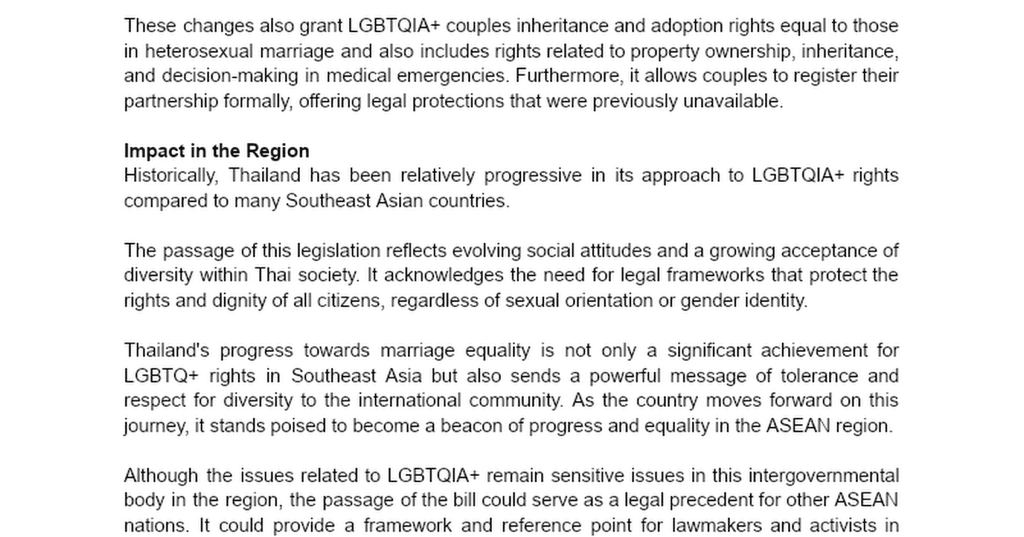
In a significant stride towards inclusivity and equal rights, Thailand the ASEAN member state has taken a momentous step to grant marriage equality. The bill was approved today June 18, 2024 in its last reading by 130 out of 152 Senate members present, with 4 voting against and 18 abstentions. Next, the bill requires formal approval from the King and subsequent publication in the Government. Once published, the law will come into effect in 120 days.
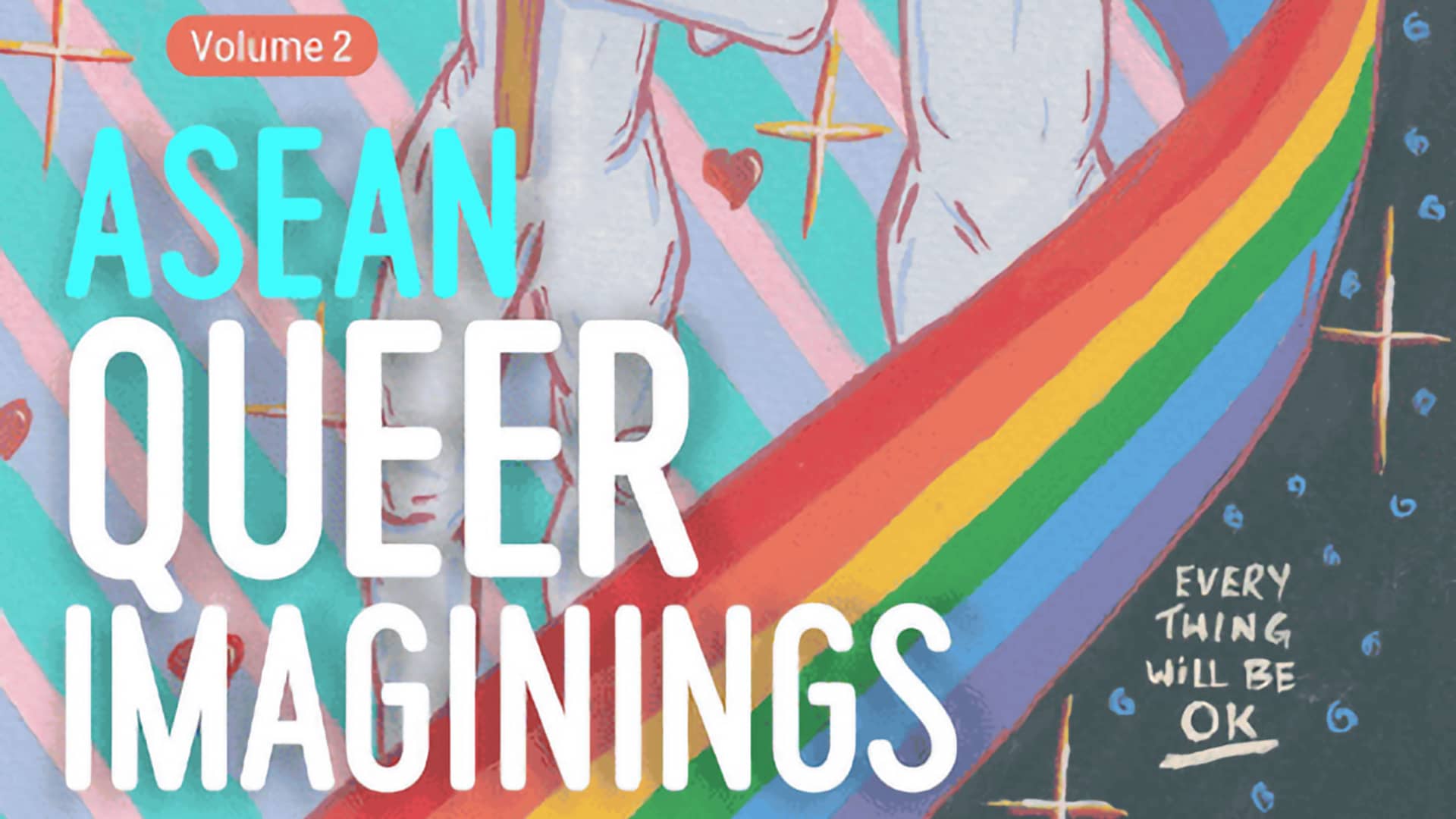
Exciting News! ASEAN SOGIE Caucus is thrilled to announce the official release of "ASEAN Queer Imaginings Vol.2"!
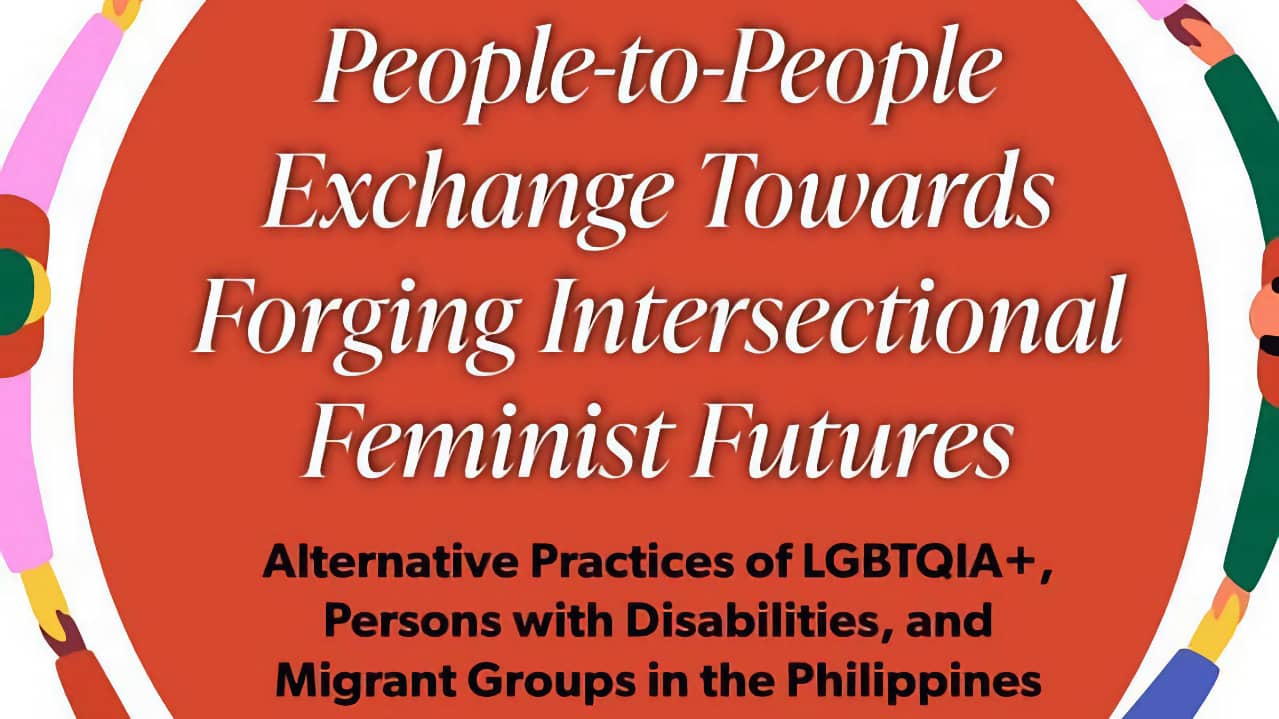
Since 2022, the Program on Alternative Development (AltDev) of the University of the Philippines Center for Integrative and Development Studies (UP CIDS) has been working with its regional research partner, the ASEAN SOGIE Caucus (ASC), in organizing key activities for the Philippine implementation of the project Forging Intersectional Feminist Futures (FIFF). ASC is a regional organization of lesbian, gay, bisexual, transgender, intersex, and queer (LGBTIQ) individuals and groups in Southeast Asia. It led the FIFF program implementation in the Philippines. ASC is also a Steering Committee Member of the Movement for Alternatives and Solidarity in Southeast Asia (MASSA).